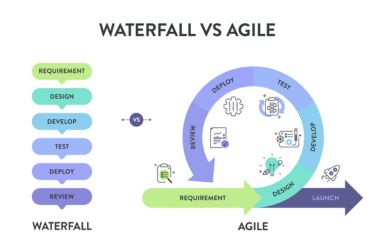Losing a job can shake us to our core, causing anxiety about the future and our finances. Taking immediate steps can ease the stress and set us on a positive path. While it’s natural to feel overwhelmed, we can regain control by focusing on what we can do right away to protect ourselves and our families.

One of the first actions we should consider is to review our financial situation. This includes exploring unemployment benefits and understanding our health insurance options. Beyond the numbers, keeping a routine and seeking support from friends or professionals can help us manage the emotional aspect of job loss more effectively.
As we navigate this challenging time, we can use it as an opportunity to reassess our skills and consider new career paths. By preparing ourselves for the job search and reaching out to our network, we will place ourselves in a better position to move forward.
Key Takeaways
- We should take immediate steps to manage our finances and benefits.
- Seeking support and maintaining a routine is key for emotional health.
- Reassessing our skills can open new career opportunities.
Immediate Actions After Losing Your Job
Experiencing job loss can be overwhelming. It's essential to manage our emotions and clarify the next steps we need to take. We must understand the circumstances of our departure and communicate effectively with our loved ones during this period.
Processing Emotions and Seeking Support
When we lose our job, it's natural to feel a wave of emotions such as shock, anger, or sadness. Acknowledging these feelings is the first step to coping. We might benefit from reaching out to friends or family for support.
Consider speaking with a professional, like a therapist, if our feelings become too much to handle. Support groups can also be a valuable resource, as they offer shared experiences and advice. Taking time for self-care is essential; activities like exercise, reading, or mindfulness can help us manage stress.
Clarifying the Circumstances and Exit Procedures
Next, we should clarify the circumstances surrounding our job loss. Connecting with our human resources department can provide insights about our severance package, any benefits, and the process of applying for unemployment assistance.
We need to gather essential paperwork, including our final paycheck and information about health insurance coverage. Understanding whether we were laid off or terminated can impact our next steps, such as whether we can claim unemployment benefits. Being informed will help us make better decisions moving forward.
Communicating With Family and Dependants
It’s important to communicate openly with our family and any dependants about our job loss. Sharing this information can help them understand the situation and support us during this time.
We should discuss any immediate financial concerns, like budgeting or expenses, to ensure everyone is on the same page. This could involve making adjustments to household spending or exploring alternative sources of income. Engaging our family in planning can also foster a supportive environment, helping us navigate this period together.
Securing Your Finances and Entitlements
When we lose our jobs, managing our finances becomes a top priority. It is important to understand the benefits available to us, including unemployment support and any entitlements we may have. Let's explore the steps we can take to secure our finances during this challenging time.
Applying for Unemployment Benefits
One of the first actions we should consider is applying for unemployment benefits. In the UK, we may be eligible for Jobseeker’s Allowance (JSA) or Universal Credit if we meet the criteria.
- Jobseeker's Allowance: This is available for those seeking work.
- Universal Credit: This is a more comprehensive benefit covering those with low income or no income.
We can claim these benefits online or at our local Jobcentre Plus. It’s essential to gather necessary documents, like our National Insurance number and details about our previous employment, to streamline the process.
Reviewing Severance and Redundancy Pay
If we’ve been made redundant, we should review our package for severance and redundancy pay. Understanding the terms is crucial for ensuring we receive what is owed to us.
- Severance Pay: This often depends on our length of service and terms in the employment contract.
- Redundancy Pay: We may be eligible for statutory redundancy pay based on our age, length of service, and weekly wages.
We can check our employment contract or consult with our HR department to clarify what we're entitled to. Knowing our rights can help us secure a fair amount.
Assessing Universal Credit Eligibility
Assessing our eligibility for Universal Credit is vital if we find ourselves without income. This benefit supports individuals and families who are experiencing financial difficulties.
We should evaluate the following factors:
- Our income and savings.
- Household size and any dependent children.
- Our living arrangements.
After checking these aspects, we can apply online. Universal Credit is designed to adapt to our needs, so it’s worth exploring any additional benefits we can receive.
Understanding Health Insurance and Pensions
When we lose our jobs, we must review our health insurance and pensions. Often, employers provide health coverage, which may end upon termination.
-
Health Insurance: If we had company health insurance, we should check for any options to continue this coverage. We should also explore alternatives through the NHS or private insurers.
-
Pension Plans: Understanding how a job loss impacts our retirement savings is necessary. We should check if we can transfer our pension to a new employer or manage it independently.
By staying informed about our health and pension options, we can make better financial decisions during this transition.
Developing a Sustainable Budget
When we face job loss, creating a sustainable budget is essential. This means adjusting our expenses and managing any existing debts responsibly. We must ensure our finances align with our new situation.
Adjusting Expenses to Reflect Reduced Income
We need to start by reviewing our monthly expenses. This includes separating necessities from wants.
Key expenses to focus on include:
- Housing: Rent or mortgage payments
- Utilities: Electricity, water, and gas
- Food: Groceries
- Transportation: Fuel or public transport costs
Next, we should look for ways to cut costs. For example, we can:
- Use public transport instead of driving
- Limit dining out and prepare meals at home
- Cancel unnecessary subscriptions
Every little amount saved helps us manage our finances better during this period. It’s wise to revisit our budget regularly to adjust as circumstances change.
Managing Debt and Speaking With Lenders
Our next step is to prioritise any debts we have. If we are struggling, we should consider contacting lenders. It's important to be honest about our situation.
We can discuss options such as:
- Repayment plans: Adjusting terms to make payments more manageable
- Temporarily pausing payments: Some lenders may offer relief during financial hardships
Additionally, we should prioritise high-interest debts to minimise costs over time. Keeping open communication with lenders can help us navigate this challenging period together. Remember, we are not alone in this, and many options are available to support us through our job search.
Planning Your Next Career Move
When we lose a job, it’s essential to create a solid plan for our future career. This involves reflecting on our career path, seeking guidance, and considering professional development to equip us for new opportunities.
Reflecting on Career Path and Opportunities
The first step is to take a moment to reflect on our career path. We should ask ourselves important questions like:
- What skills do we have?
- What do we enjoy doing?
- Which industries interest us?
By identifying our strengths and passions, we can explore new opportunities that align with our interests.
It can also be helpful to list potential career options we may not have considered before. This exploration might lead us to roles that are fulfilling and exciting.
Take time to assess job market trends. Understanding where the demand lies can help us make informed choices. Using resources like job boards or career websites can provide insights into growth areas.
Seeking Guidance From a Career Coach
Working with a career coach can be a valuable step in our transition. These professionals offer personalised advice and support tailored to our needs.
A career coach helps us clarify our goals and can assist in mapping out a strategic plan. They may offer insights into industry trends and networking opportunities.
During sessions, we can discuss our concerns and aspirations. A coach will listen and provide constructive feedback. They may also help us refine our CV and practice interview skills, making these experiences less daunting.
Engaging with a career coach can also help us build confidence. Knowing we have a plan can ease the stress of job loss and pave the way for a smoother transition.
Upskilling Through Professional Development
Another essential aspect of planning our next career move is upskilling. We should assess if there are skills we need to develop or enhance to become more competitive.
Enrolling in courses or training programmes can provide us with the necessary knowledge. These could be online courses, workshops, or even volunteering opportunities that offer hands-on experience.
Look for certifications or qualifications that are highly valued in our desired field. They can significantly improve our employability.
Also, consider joining professional organisations or networking groups. These resources often offer access to workshops, seminars, and industry events, keeping us informed on the latest developments.
By focusing on professional development, we reinforce our commitment to growth and adaptability in our careers.
Preparing for the Job Search
When preparing for a job search, we should take specific steps to improve our chances of landing a new position. This involves updating our CV and cover letter, knowing where to look for job listings, and understanding how to navigate the tools employers use to filter applicants.
Updating Your CV and Cover Letter
It is crucial to update our CV and cover letter for each job application. We should highlight relevant skills and experiences that match the job description.
Tips for updating our documents:
- Use keywords from the job listing to make our application stand out.
- Keep our CV to two pages at most and tailor it to the role.
- In our cover letter, express genuine interest and explain why we are a good fit.
We can also ask a friend or a professional to review our documents for any errors or suggestions to improve clarity.
Identifying Relevant Job Boards
Knowing where to search for job opportunities is key. Several job boards cater to different industries and job types.
Popular job boards include:
- Indeed: A broad range of job listings across various fields.
- LinkedIn: Allows us to network while searching for jobs.
- Totaljobs: Focuses on jobs in the UK.
We should create profiles on these sites, upload our CV, and set up job alerts to receive notifications about new postings that match our criteria.
Navigating Applicant Tracking Systems
Many companies use Applicant Tracking Systems (ATS) to filter applications. Understanding how these systems work can greatly improve our chances of being noticed.
To effectively navigate ATS:
- Use standard job titles and common phrases found in the job ad.
- Avoid complex formats; stick to simple layouts in our CV and cover letter.
- Include relevant experience early in our documents since ATS often scans the first few sections first.
By following these strategies, we can ensure our job search is as effective as possible.
Maximising Your Professional Network
Networking is vital after losing our jobs. It helps us connect with people who can assist in our job search. Building and utilising our professional network effectively can lead to new opportunities and support during this challenging time.
Connecting With Professional Contacts
Reaching out to our existing contacts can be a powerful first step. We should start by identifying key individuals who may provide leads or advice. This includes former colleagues, mentors, and industry acquaintances. A simple email or message can reopen conversations.
When we connect, it’s important to be clear about our situation. We can share that we've lost our job and are exploring new opportunities. This honesty can lead to valuable insights, referrals, or even job openings.
Additionally, we should consider scheduling brief catch-up calls. Face-to-face interactions, even virtually, can strengthen our relationships. Keeping these connections warm is essential for leveraging opportunities when they arise.
Leveraging Social and Online Platforms
Social media platforms like LinkedIn are essential for building our professional network. We can enhance our profiles by updating our skills, job experiences, and adding relevant keywords. This increases our visibility to recruiters searching for candidates.
Joining relevant groups and participating in discussions can also be beneficial. Engaging with posts and sharing industry-related content makes us more active and visible.
We can also use online job search platforms to connect with potential employers. Resources like job boards often have networking events. Attending these events allows us to meet industry professionals and expand our network.
By actively leveraging both social and online platforms, we enhance our chances of finding job opportunities and receiving support from our professional network.
Frequently Asked Questions
Navigating job loss can be daunting, but having the right information can ease the process. We will address several common concerns about immediate actions to take, managing finances, coping strategies, and resources available to support us during this time.
What steps should one take immediately after job loss?
First, we should take a moment to process the situation and acknowledge our emotions. Seeking support from friends or family can be beneficial. Next, we need to review our financial situation and budget accordingly. It’s also important to check if we are eligible for unemployment benefits.
How can one manage finances after becoming unemployed?
Managing finances starts with creating a strict budget. Tracking our expenses helps identify areas where we can cut costs. We should also explore unemployment benefits and any severance packages we may be entitled to. This might include looking into additional support services that offer financial advice.
What are some effective coping strategies for job loss later in life?
Coping with job loss later in life can present unique challenges. Staying connected with our support network is crucial. We can benefit from considering part-time work or volunteering to gain experience and keep our skills sharp. Engaging in regular physical activity can also improve our mood and well-being.
What resources are available for those who've lost their job unexpectedly?
Several resources can assist us after job loss. Local job centres often provide support services. Websites and organisations dedicated to career development offer job search tools, resume writing services, and networking opportunities. We can also consider online courses to enhance our skills.
How can I rebuild my self-esteem after losing my job?
Rebuilding self-esteem starts with recognising our strengths and achievements. Setting small, achievable goals can help rebuild confidence in our abilities. Engaging in activities we enjoy and surrounding ourselves with supportive people can also aid in the process of boosting our self-worth.
What are some tips for job searching after sudden unemployment?
When job searching, we should start by updating our CV and cover letter. Tailoring them to each position increases our chances of standing out. Networking is vital, as many positions are filled through connections. We can also utilise job search websites and attend career fairs to expand our opportunities.





















